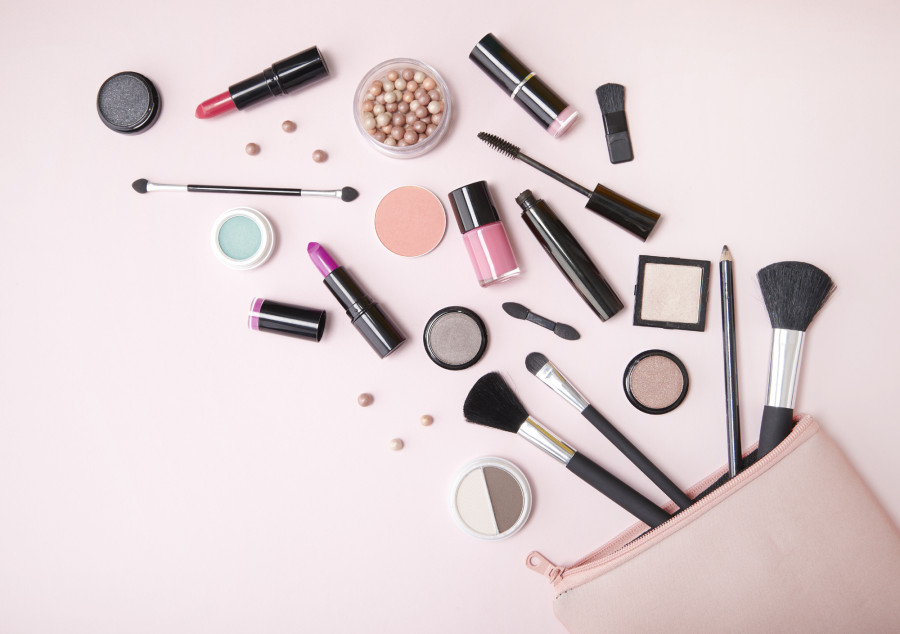Columns
Beauty products and the myth of empowerment
The impression of impulsiveness and achievement by merely using beauty products creates a view of the self that is warped.
Sakhie Pant
Beauty regimens are a part of everyday life. Notions like ‘women’s empowerment’ has been used excessively to sell products to women as the appearance has a major role in how an individual is accepted and liked in society—a basic human need. Regrettably, the process of beautification has become a necessity, both personally and culturally. The advertisements that oftentimes compels one to believe in unrealistic standards of beauty have major impacts on one’s self-esteem. The elements of beauty products such as choices, motive and action create an appropriate condition for women as an artist who engages in the beautification process. This requires physically modifying one’s original look to meet socially defined look, which majority of the people perform without thinking much. But the visual assault of advertisements and the myth of beautification leading to empowerment is as detached from the truth as it could be.
The cosmetic industry is a lucrative business. According to a survey, in Nepal, people use cosmetics products worth Rs. 5.5 billion. Even though there is an increase in consumption, it doesn't change the truth. A hair gel or serum, for example, cannot contribute to feeling optimistic, nor can any eye makeup keep oneself active all day to accomplish tasks. A lipstick definitely cannot make your dreams come true and more certainly, perfumed deodorants cannot enable spontaneity. The impression of impulsiveness and achievement by merely using beauty products creates a view of the self that is warped.
While we often tend to glorify it, the process of enhancing one's look for empowerment has more serious concerns. The irony is that the more one pursues to acquire something, the more they reinforce the fact that it was lacking in the first place. Same is the case with using beauty products. The feminine beautification is an attempt to overcome something that is seen as lacking and flawed. The beauty industry, to some extent, has taken advantage of this insecurity to achieve the benefits for themselves. As the industry highlights the glorification of the cultural necessity to look good, more people get influenced.
It is equally disturbing when the current definition of empowerment is merely being equated with looking good. The attempt to overcome flaws require a huge investment in terms of time and energy. In this sense to feel empowered, the daily routine requires allocation of a significant amount of time, at least 15-20 mins or even more as well as multiple products. What’s more obstructive is the high costs associated with these products in a highly profitable and niche market which makes it accessible only to the well-off sections of society.
The beauty industry claims that the ‘freedom of choice’ enables empowerment. But cultivating an ideal image of the self that is bereft of flaws and vulnerabilities undermines women’s empowerment. It signifies that one has little or no control at all about their looks thereby falsely advocating for shunning one's true appearance. Regrettably, individuals are pressurized to live up to the expectations and tend to be motivated by the fear of rejection.
Seeking the approval of others to feel empowered is more reinforced by social media where people upload photos to receive validation in the form of likes and comments. Likewise, the use of social media has replaced its original function of sharing useful information. Now, increasingly they are used to judge or compliment other people’s looks. Any portrayal of a person, for instance, may receive 100 responses, while informative posts may not even receive half the responses.
Individuals are busy comparing oneself to another on the voyage to be uniquely empowered, but in the process end up behaving ‘like everyone else’. A survey indicated that the reason some women choose beauty products is to hide their bare faces and body, in other words, their authenticity. Empowerment through beauty products are not one-dimensional but complex experience to discourage a sense of self-worth.
True empowerment is about respecting one’s individuality. Each individual is unique in terms of looks and character. Beauty products should not be given any sort of authority to dictate what is considered beautiful and empowered. To be truly empowered, an individual should first realise that our perception of empowerment has been largely influenced by external agents such as the beauty industry and society at large. This is not only applicable to women but also to men who have equal pressure to look good to feel empowered. True empowerment comes from having confidence in oneself rather than constantly engaging in self-doubt and comparisons.
***
What do you think?
Dear reader, we’d like to hear from you. We regularly publish letters to the editor on contemporary issues or direct responses to something the Post has recently published. Please send your letters to [email protected] with "Letter to the Editor" in the subject line. Please include your name, location, and a contact address so one of our editors can reach out to you.




 19.12°C Kathmandu
19.12°C Kathmandu















